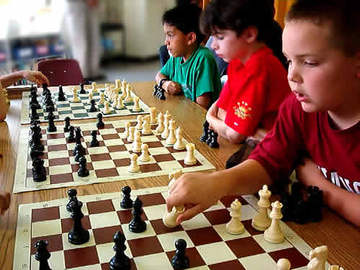Introduction

A child’s mental health is one of the things that a parent should look into. Although it is not easy to separate what are normal growing factors from those that depict possible mental health issues in children, it is an essential thing that must be done by parents, caregivers or guardians.
History

Mental health is an issue which has existed for as long as mankind existed in the world. Only in the olden times, it was not regarded as a field in medicine. People with mental health issues were viewed as simply crazy and even witchcraft was used to banished people with these problems. Among children, it was not common to find youngsters who have mental problems because documentation and research did not exist. People did not think that mental health problems in children were possible. Sullen moods and aggression were viewed as part of normal development and growing up. Nowadays, the mental health of children is tested based on a psychological evaluation conducted in schools, hospitals with a psychology or psychiatry unit, and medical centers.
Features

Normally, the development of the child’s physical and mental faculties does not happen overnight. From the moment the child is born, these are developed gradually by several factors: nutrition (food), nurturing (care), stimulation, and environmental factors. As the child grows older, there are special indicators to check if a child’s development is normal. For instance, when a baby is newly born, the Apgar test is performed to check if the baby responds to stimuli such as tapping or being raised on its two hands. These findings are measured against the Apgar scale from 1 to 10.
As the child grows, there are also several factors that are involved such as the age when a child first begins to crawl, talk, walk, and run. All these have bearing on the mental health of children. However, typical studies show that the mental health of children are affected by age 14, with many of mental health issues appearing at this age. It is not ruled out that it can happen before this age.
Therefore, parents, guardians, and caretakers should be vigilant in watching for unusual signs of behavior that could indicate serious problems of mental health in children. Depression, thoughts of death, hurting oneself (head banging), sleep and appetite disturbances are a few of the signs to watch out for. However, it is important to differentiate that these symptoms are not caused by new events in the life of the child such as the birth of a sibling, death in the family, traveling, medical sickness, or moving to a new town or school.
If your child is of schooling age, ask school authorities how your child is doing. As soon as you see a pattern in your child’s behavior that has nothing to do with transient events or circumstances, talk to your family doctor and/or the child’s pediatrician. Your child could be evaluated immediately by a psychologist, a psychiatrist, and even an educator. More often than not, with psychotherapy and medication, your child will be fine. It is completely worth it even if you overreacted than letting it go too far or without doing anything. Like any other sickness, the mental health of children is the same. It will be more difficult to treat it the longer you wait. And, although there is no cure yet for mental health disease in children and adults, there are effective treatments that exist.
Tips and comments
There is no real age when mental health in children should be tested. However, the earlier you get help, the better are the chances of treatment working. If your children are diagnosed with mental health problems, do your own research and find out what methods might work for your kids. Bring these concerns with the doctor so that you can make an informed decision as parents or guardians.